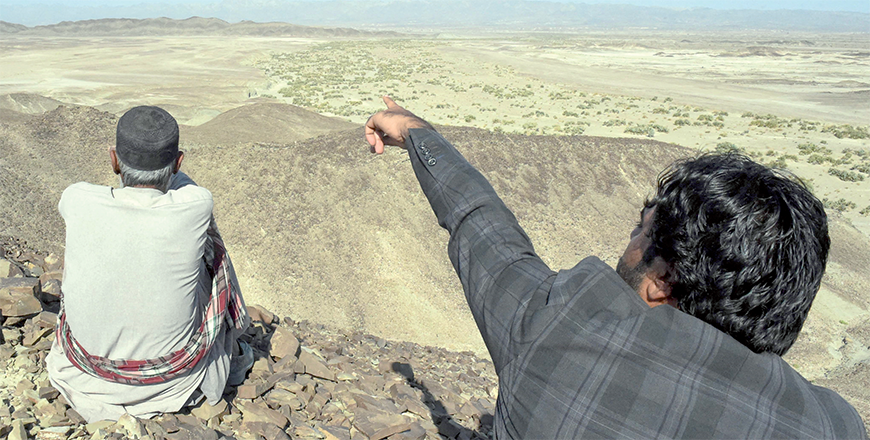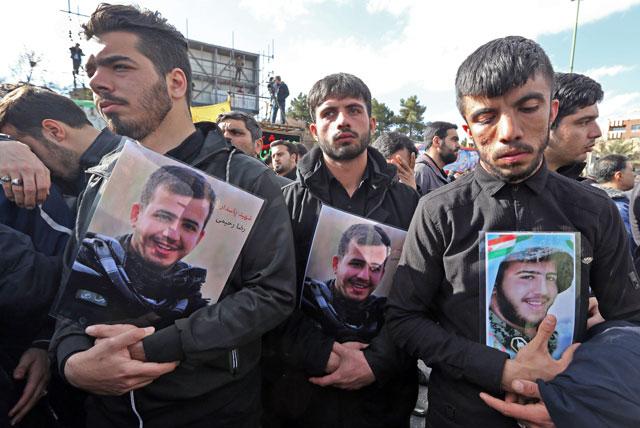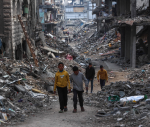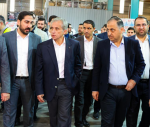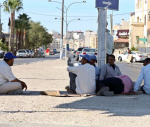You are here
Gunmen in Iran kill 9 Pakistanis in border area
By AFP - Jan 27,2024 - Last updated at Jan 27,2024
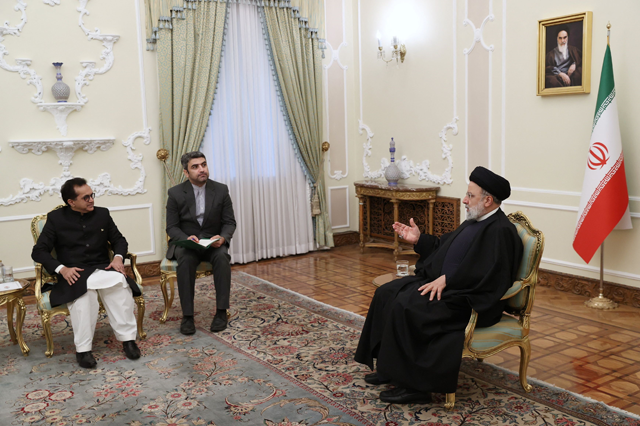
This handout photo taken and released by the Iranian Presidency shows Iran's President Ebrahim Raisi (right) meeting with Pakistan's new ambassador Muhammad Mudassir Tipu in Tehran on Saturday (AFP photo)
TEHRAN — Gunmen in south-eastern Iran killed nine people on Saturday, Iranian media reported, with Islamabad's ambassador identifying them as Pakistanis, as the neighbouring countries have sought to ease tensions after deadly cross-border fire.
Iran's Mehr news agency reported that "according to witnesses, this morning unknown armed men killed nine non-Iranians in a house in the Sirkan neighbourhood of Saravan city" in Sistan-Baluchistan province.
So far, no group had claimed responsibility, the news agency added.
The province's deputy governor, Alireza Marhamati, told official news agency IRNA that according to survivors of the incident, "three armed people shot at the foreigners after entering their residence and fled the scene".
Marhamati confirmed the toll of nine deaths and said three others were wounded.
The Pakistani ambassador to Tehran, Muhammad Mudassir Tipu, said on X, formerly Twitter, he was "deeply shocked by horrifying killing of 9 Pakistanis in Saravan".
"Embassy will extend full support to bereaved families... We called upon Iran to extend full cooperation in the matter."
Pakistani foreign ministry spokeswoman Mumtaz Zahra Baloch condemned the attack as "horrifying and despicable" and asked Iranian authorities to "investigate the incident and hold to account those involved in this heinous crime".
She stressed that the Pakistani embassy in Iran “will do its best to repatriate dead bodies at the earliest”, adding that “such cowardly attacks cannot deter Pakistan from its determination to fight terrorism”.
The deadly attack follows rare military action in the porous border region of Baluchistan — split between the two nations — that had stoked regional tensions already inflamed by the Hamas-Israel war.
Sistan-Baluchistan, one of the few mainly Sunni Muslim provinces in Shiite-dominated Iran, has seen persistent unrest involving cross-border drug-smuggling gangs and rebels from the Baluchi ethnic minority.
On January 18, Pakistan launched air strikes on “militant targets” in Iran, two days after Iran had launched strikes on its territory.
Tehran said it had targeted Jaish Al Adl, a group which has carried out a spate of deadly attacks in Iran in recent months and blacklisted by Iran as a “terrorist” organisation.
The Iranian strikes, which Pakistan said killed at least two children, drew a sharp rebuke from Islamabad, which recalled its ambassador from Tehran and blocked Iran’s envoy from returning to Islamabad.
Tehran also summoned Islamabad’s charge d’affaires over Pakistan’s strikes, which left at least nine people dead.
The two countries, however, announced last Monday that they had decided to de-escalate and resumed diplomatic missions with the two ambassadors returning to their posts.
The Pakistani ambassador on Saturday presented his credentials to Iranian President Ebrahim Raisi in Tehran, the presidency website reported.
“Borders are an opportunity for economic exchanges and improving the security of neighbours, and it is necessary to protect this opportunity against any element of insecurity,” Raisi said during the meeting with the Pakistani envoy.
The Iranian president called the two countries “brothers” and described their relations as “unbreakable”.
Related Articles
TEHRAN — Pakistan launched deadly strikes against militant targets in Iran on Thursday in retaliation for Iranian strikes on its territory,
TEHRAN — Iran's elite Revolutionary Guard said on Monday it has arrested three "terrorists" involved in last week's deadly suicide bomb atta
DAVOS, Switzerland — Tehran’s top diplomat said on Wednesday that his country’s armed forces targeted an “Iranian terrorist group” in Pakist


